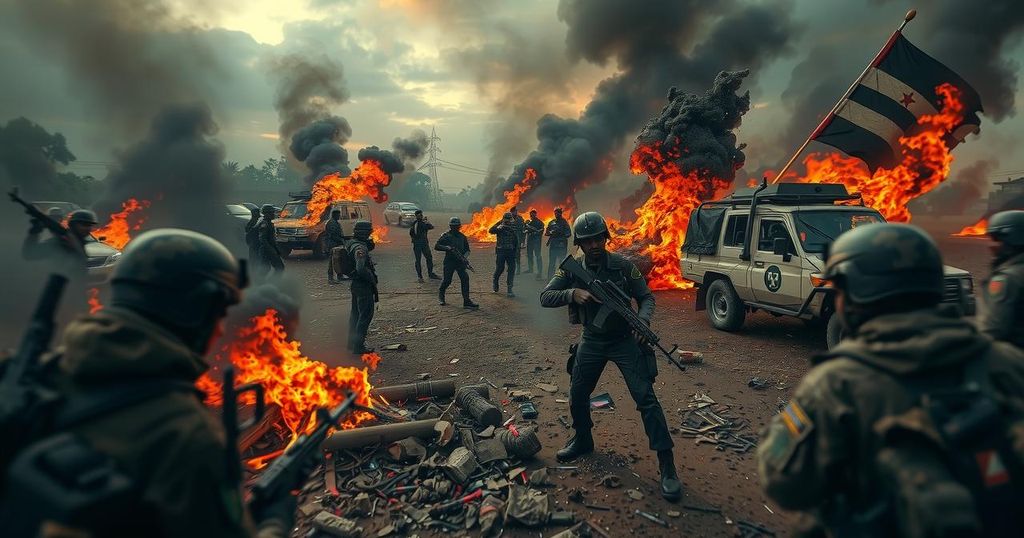Confusion Reigns in South Sudan Following Gunfight at Ex-Spy Chief’s Residence
Following the firing of Gen. Akol Koor Kuc, South Sudan experienced a deadly gunfight at his residence, prompting local businesses to shut down in fear. The altercation resulted in the deaths of two soldiers and two civilians. The government has initiated an investigation into the incident, amid ongoing concerns regarding the country’s security situation and political turmoil with Gen Kuc’s abrupt dismissal.
In South Sudan, the recent gunfire incident at the residence of former spy chief Gen. Akol Koor Kuc has left the capital, Juba, in confusion and fear. This clash, which lasted over 50 minutes, occurred following Gen Kuc’s removal as head of the National Security Services and his subsequent house arrest. Tragically, the firing resulted in the deaths of two soldiers and two civilians, including a student and a lawyer, caught in the crossfire. An investigation has been initiated to determine the cause of this violent misunderstanding among troops.
The situation stems from the ongoing instability in South Sudan, a nation struggling to establish peace since the civil war that lasted for five years. Despite a 2018 peace agreement, violence remains prevalent in various regions, including the capital city. Gen. Akol Koor Kuc, previously a vital figure in President Salva Kiir’s administration, was recently dismissed from his position, a move that analysts interpret as indicative of internal power struggles within the government. His subsequent house arrest and the incident at his residence mark a significant moment in South Sudan’s political landscape.
The gunfire incident involving Gen. Akol Koor Kuc’s residence highlights the fragility of security in South Sudan and the complexities surrounding the political dynamics following his dismissal. With the loss of life during the altercation, authorities have pledged to investigate the underlying causes of this conflict. As South Sudan continues to grapple with governance issues, the path to stability appears fraught with challenges.
Original Source: www.bbc.com




Post Comment